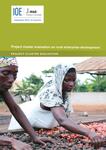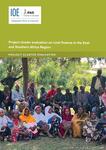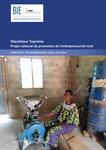Page Header

Downloads:
1
National Rural Development Programme – Phase I: Western Region
Overview
The programme objectives were to significantly reduce poverty and prevent exclusion and discrimination among the poorest indigenous and non-indigenous populations of the Western Region of Guatemala through comprehensive, integrated and environmentally sustainable socio-economic development of rural areas. The programme proposed activities to strengthen local development and decentralization, boost competitiveness and social investments, and strengthen the capacities of the Ministry of Agriculture, Livestock and Nutrition as the programme implementing agency. Despite the programme’s relevance to the needs of the country and the target population, it succeeded in carrying out only a limited number of isolated productive infrastructure activities and investments of limited scope, far from the integrated rural development approach envisioned in its design. The evaluation recommends further analysis on social targeting strategy for beneficiary and intervention mechanism selection. The structural problems underlying rural poverty in Guatemala call for differentiated intervention mechanisms and particular attention to indigenous peoples and vulnerable groups such as women, young people and people with disabilities.Report Details
| Year Published | |
| Type | |
| Joint | No |
| Partner/s | N/A |
| Consultant name | |
| Agency Focal Point | Mónica Lomeña Gelis |
| Focal Point Email | m.lomena-gelis@ifad.org |
| Managed by Independent Evaluation Office | Yes |
| Country/ies |
YOU 'RE READING
National Rural Development Programme – Phase I: Western Region








